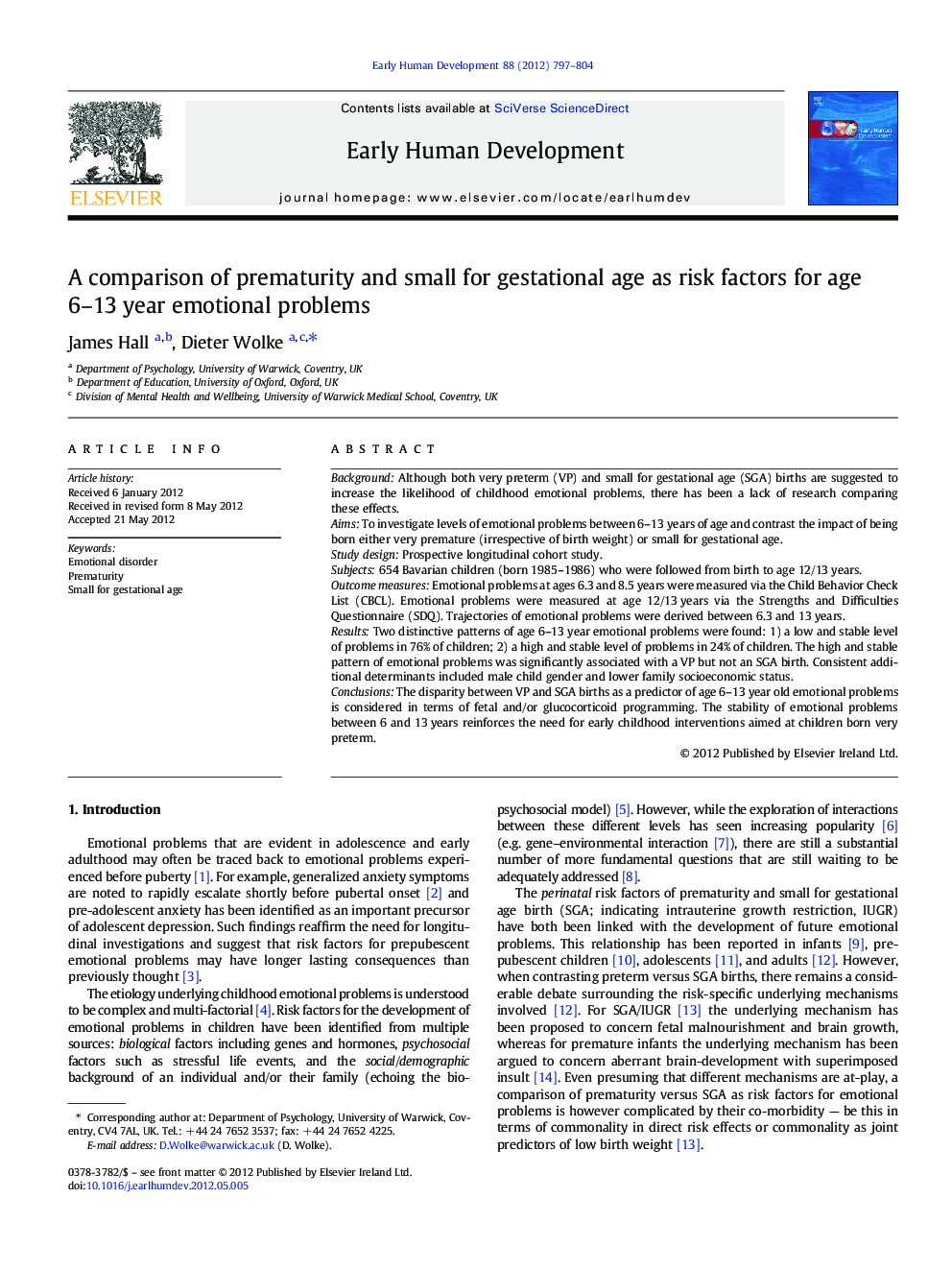| Article ID | Journal | Published Year | Pages | File Type |
|---|---|---|---|---|
| 3918368 | Early Human Development | 2012 | 8 Pages |
BackgroundAlthough both very preterm (VP) and small for gestational age (SGA) births are suggested to increase the likelihood of childhood emotional problems, there has been a lack of research comparing these effects.AimsTo investigate levels of emotional problems between 6–13 years of age and contrast the impact of being born either very premature (irrespective of birth weight) or small for gestational age.Study designProspective longitudinal cohort study.Subjects654 Bavarian children (born 1985–1986) who were followed from birth to age 12/13 years.Outcome measuresEmotional problems at ages 6.3 and 8.5 years were measured via the Child Behavior Check List (CBCL). Emotional problems were measured at age 12/13 years via the Strengths and Difficulties Questionnaire (SDQ). Trajectories of emotional problems were derived between 6.3 and 13 years.ResultsTwo distinctive patterns of age 6–13 year emotional problems were found: 1) a low and stable level of problems in 76% of children; 2) a high and stable level of problems in 24% of children. The high and stable pattern of emotional problems was significantly associated with a VP but not an SGA birth. Consistent additional determinants included male child gender and lower family socioeconomic status.ConclusionsThe disparity between VP and SGA births as a predictor of age 6–13 year old emotional problems is considered in terms of fetal and/or glucocorticoid programming. The stability of emotional problems between 6 and 13 years reinforces the need for early childhood interventions aimed at children born very preterm.
